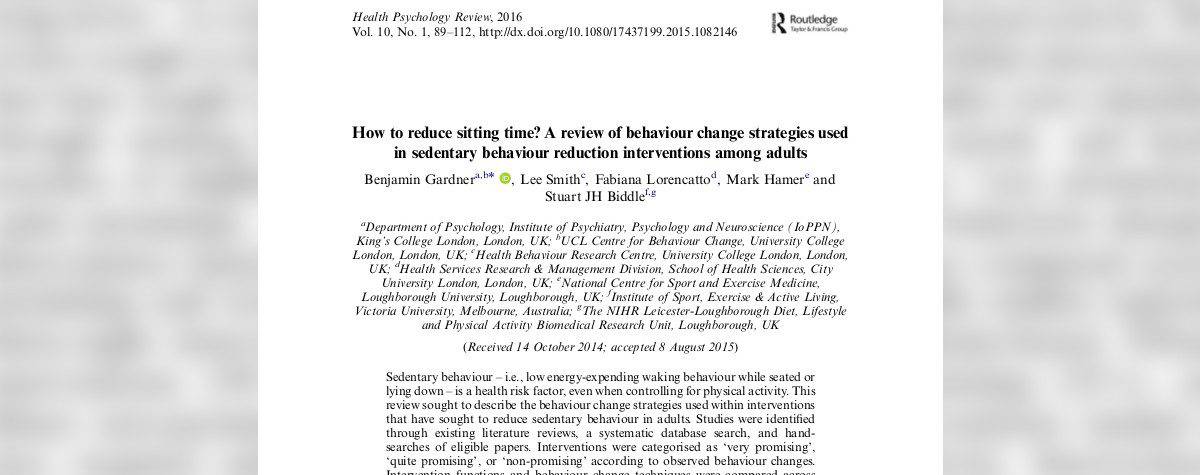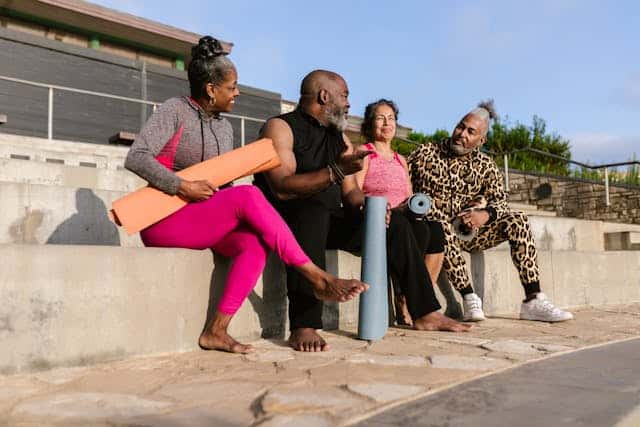
Revising on the run vs studying on the sofa
September 16, 2015
The physiology of sedentary behavior in children with cerebral palsy and people with stroke.
October 7, 2015Via Stone Hearth Newsletters (weblink is now defunct):
For the first time, this new study has shown that increasing levels of physical activity is likely to be much less effective at reducing prolonged sitting than directly attempting to decrease sitting time.
The research team, led by Dr Benjamin Gardner, from the Department of Psychology at the IoPPN, King’s College London, searched the current existing literature on trials of interventions that sought to reduce sitting time. The team then categorised these studies according to their effectiveness, and examined the strategies that had been used in each trial to try to reduce sitting. The studies were deemed promising, where those who received the intervention did reduce sitting time, or not promising, where the interventions did not reduce sitting time.
Out of the 38 interventions assessed, a majority of 23 (60 per cent) were found promising whilst 15 (39 per cent) were found not promising.
Some of the promising interventions included the provision of sit-stand desks at work, though other techniques such as encouraging people to keep records of their own sitting time, setting individual goals for limiting sitting time, and using prompts and cues to remind people to stop them sitting, were also found to help reduce sitting time, even when used in isolation.
In addition, effective interventions tended to educate people about the health benefits of reducing their sitting time.
The full article is available via the Stone Hearth Newsletters (weblink is now defunct).




